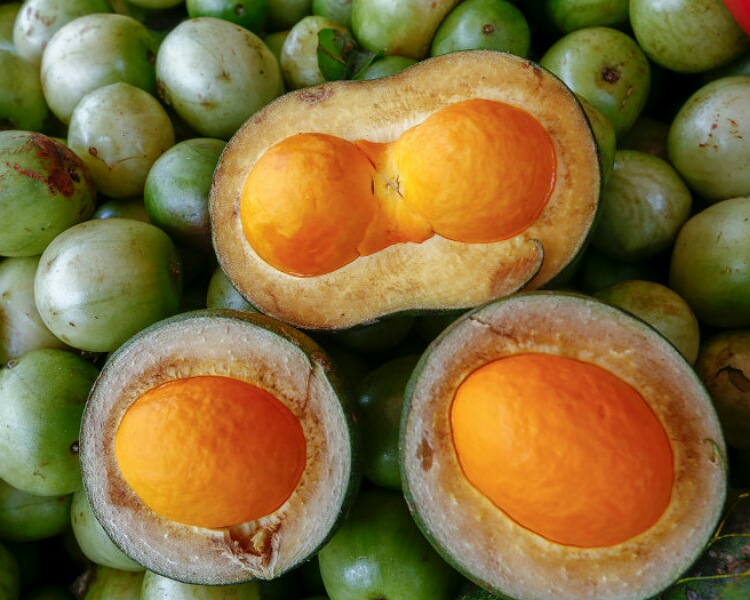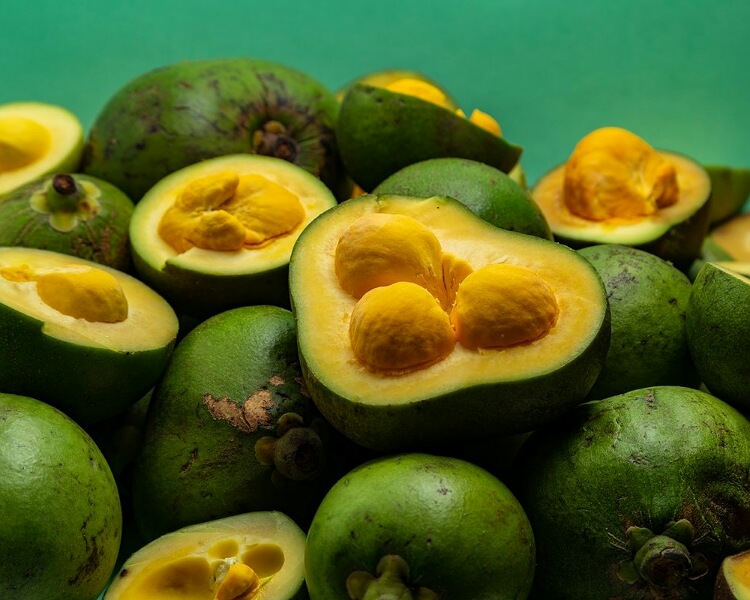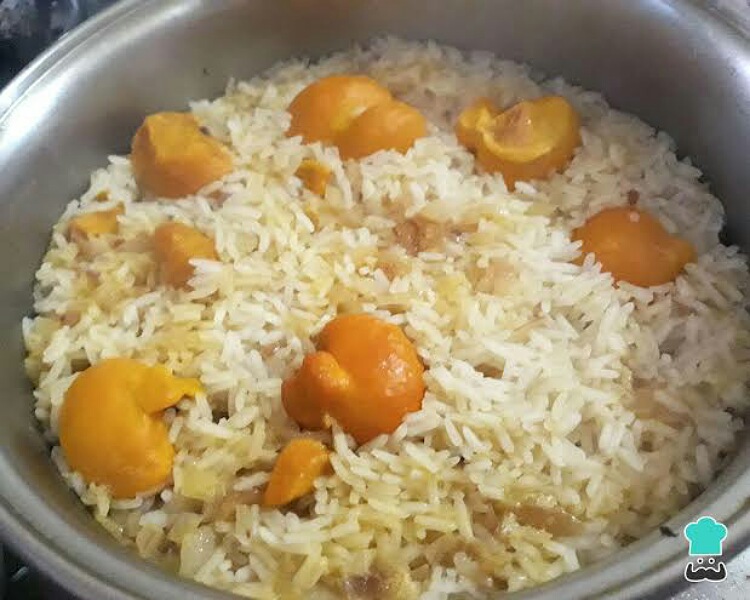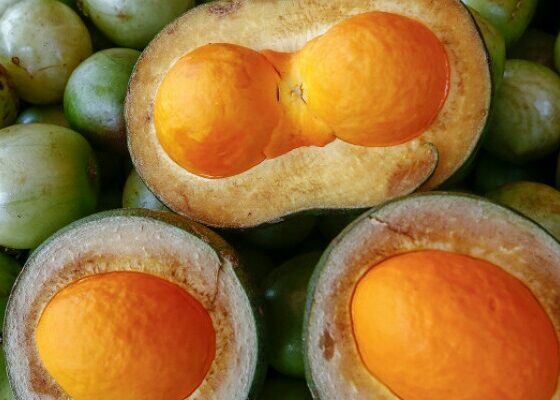Pequi or Souari nut is a fruit native to Central western Brazil. It is nutritious with a lot of health benefits.
Pequi or Souari nut
Not many people might have had the opportunity to taste and enjoy pequi fruit or souari nut. The scientific name is Caryocar brasiliense. It is grown in Brazil mainly in it’s Central Western regions. Moreover, one can also find it in the Northern areas of Paraguay. In these places, they are as common as apples and oranges for us.
A ripe pequi has almost the same size as an orange. But its color is not orange but varies from purple to dark green to light green as it matures over five to six months time.

Inside it, is a seed or nut that is eaten similar to peanuts. And the yellow pulp is also edible. But it’s taste is strange; something in between that of citrus fruit and cheese. The seeds have sharp spines on the surface that one should be careful of while eating the pulp. Hence, it is one of the most dangerous fruit to consume.
In Brazil and in some countries that import the fruit, the pulp is added to chicken and other protein foods to enrich their flavor.
Nutritional facts
This fruit has a lot of dietary fiber, vitamin A, carotenoids, and healthy monounsaturated fatty acids. These include oleic and linoleic acids. Moreover, the fruit also contains stearic and palmitic acids.
Health benefits of Souari nut
The consumption of this fruit is in a limited region of the world. And studies on it are also quite few. Here are some of the known health benefits.
Heart health
The studies on this aspect of pequi fruit are lacking. But it has high content of monounsaturated fatty acids. And these protect the heart. These fatty acids abound in olives and nuts and provide them with their health benefits. These compounds lower blood bad cholesterol. Thus, heart attack, atherosclerosis, stroke and early deaths are averted.

Blood pressure lowering effect
This fruit has lots of minerals, vitamins, and antioxidants. The potassium in it relaxes blood vessels. The anti-inflammatory substances in the natural acids of the fruit also boost arterial health and lower blood pressure. The burden on the heart comes down.
Minimizes joint and muscle pain
A small study on athletes proved that adding pequi to their daily diet reduced pain and soreness of their muscles. The anti-inflammatory properties of the pulp are useful in this.
Improves eye sight
The fruit has lots of carotenoids and vitamin A. These mop up free radicals and improve eyesight. They reduce risk of macular degeneration of retina and cataracts.
Hair and skin improvement
The fruit has high levels of tocopherol and vitamin A. Both are good for hair and skin. Consuming this fruit can remove skin blemishes, reduce scars, and gives the skin a new glow. It also decreases ageing process. In traditional medicine, it finds use in management of eczema and other skin conditions.

The essential oil obtained from the mesocarp and seed of the fruit is added to hair shampoos and skin moisturizers. This was initially done in Brazil only but it now also boasts of an international market.
Read here: What is ackee fruit? National fruit, Jamaica, cooking, precautions, US ban
Digestive aid
Pequi is rich in dietary fiber. This keeps the gut healthy. It adds bulk to stools and prevents constipation. Bloating and cramps also reduce. This also helps reduce blood cholesterol. And thus promotes heart health.
